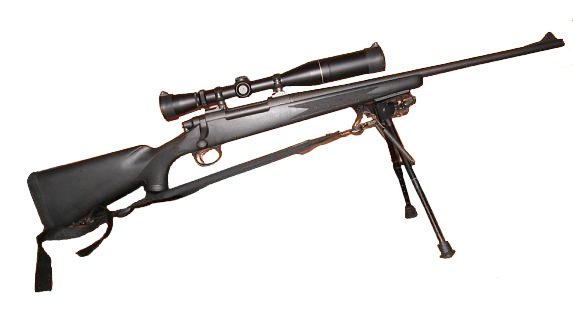
A class action lawsuit over allegedly defective Remington rifles has been settled nationwide. According to the Joint Notice of Settlement filed in the U.S. District Court for the Western District of Missouri, Western Division (Case No.4:13-cv-00086-ODS), the settlement was reached between Remington Arms Company, LLC., Sporting Goods Properties, Inc. and E.I. Du Pont Neumours and […]
 A class action lawsuit over allegedly defective Remington rifles has been settled nationwide. According to the Joint Notice of Settlement filed in the U.S. District Court for the Western District of Missouri, Western Division (Case No.4:13-cv-00086-ODS), the settlement was reached between Remington Arms Company, LLC., Sporting Goods Properties, Inc. and E.I. Du Pont Neumours and Company and the plaintiff class. The notice states that “The parties have finalized the material terms of the settlement and are in the process of executing a comprehensive settlement agreement concerning all of the class claims.”
A class action lawsuit over allegedly defective Remington rifles has been settled nationwide. According to the Joint Notice of Settlement filed in the U.S. District Court for the Western District of Missouri, Western Division (Case No.4:13-cv-00086-ODS), the settlement was reached between Remington Arms Company, LLC., Sporting Goods Properties, Inc. and E.I. Du Pont Neumours and Company and the plaintiff class. The notice states that “The parties have finalized the material terms of the settlement and are in the process of executing a comprehensive settlement agreement concerning all of the class claims.”
According to the lawsuit, Remington Model 700 Rifle Series have a defective trigger mechanism known as the Walker Fire Control. This mechanism poses a serious safety risk because it can cause the gun to fire without a trigger pull. The internal component that allegedly causes this is the “trigger connector”, which supports another internal part called the sear. When the trigger is pulled, the connector is pushed forward by the trigger body, allowing the sear to fall and the rifle to fire. A gap is created between the trigger body and the trigger connector as the rifle fires.
According to the complaint, various field debris, manufacturing scrap, burrs from the manufacturing process, lubrication and moisture can build up in the gap created during a trigger pull. This buildup can allegedly restrict the return of the trigger connector to its proper location under the sear, predisposing the rifle to malfunction in the absence of a trigger pull.
The lawsuit states that there is no engineering basis for manufacturing a rifle this way, and alleged that the Defendants were aware of the defect since before it was even placed into commerce. The complaint states that Mr. Walker, the designer of the mechanism, confirmed in January 2011 that the extra connector serves no purpose other than to reduce manufacturing costs and make trigger pull smoother.
Remington admitted to receiving 3,273 customer complaints about firing without a trigger pull between 1992 and 2004, the suit states.
By October 30, 2014, a formal settlement agreement will be prepared and a joint motion for preliminary settlement will be submitted to the Court for approval. A Second Amended Class Action Complaint will also be prepared and filed by the Plaintiffs by that time.


